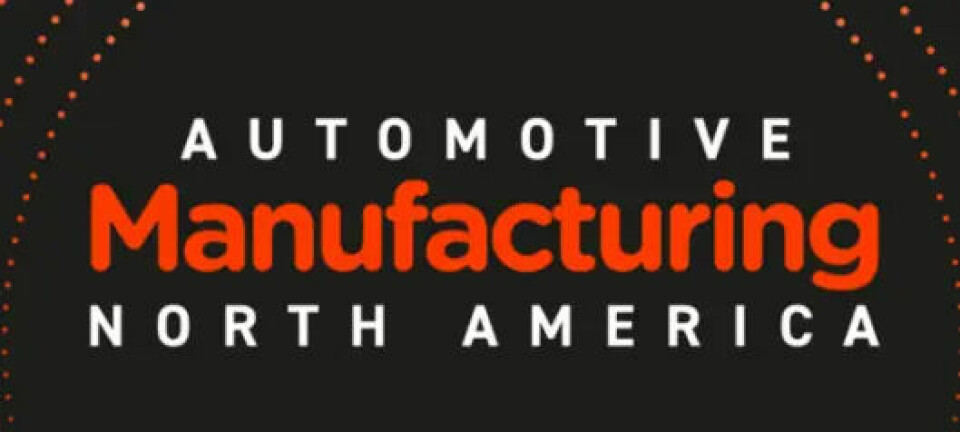Automotive Workforce Wanting

The new battleground of human capital: An interview with Julien Matalou, ManpowerGroup VP
With the automotive industry's rapid transformation, automakers are facing complex pressures. In this exclusive interview with ManpowerGroup's Global VP, Julien Matalou, AMS discerns ways to bridge the skills gap, embrace automation, and build a more resilient workforce.
In a recent article, AMS covered a report from ManpowerGroup on the shifting automotive workforce and its implications for automotive production. The findings laid bare the complex pressures on the carmaking industry's human capital. Faced with trade uncertainty, 45% of employers expect their headcount to remain static in the third quarter of 2025, a cautious stance that reflects broader economic unease. This ‘strategic’ pause is occurring even as the demand for new technical and cognitive skills intensifies.
While electrification and software-defined vehicles redefine production, the workforce is simultaneously grappling with a skills gap and a pervasive anxiety about automation.

AMS now speaks to Julien Matalou, Global VP at ManpowerGroup, in a Q&A that moves beyond the report's diagnosis to explore how manufacturers can adopt a more deliberate strategy for talent management, ensuring their human capital keeps pace with the technological revolution.
Hi Julien. The report states that 74% of automakers are struggling to find skilled talent. What do you think is the single most actionable strategy that plant managers can implement on the factory floor to attract and retain the workforce they need?
Julien Matalou: When I work with my clients to overcome this challenge, first and foremost I believe it’s about understanding the local markets where your facilities are located. Who are you competing against for talent? How are you differentiated?
In the past, the workforce was larger in advanced economies so you may have only been competing against employers in your industry. With fewer young people entering manufacturing and skilled trades, competition across industries is increasing. This makes it much more important to benchmark your talent best practices against all potential competitive employers.
The size of the total workforce is also getting smaller. For example, Europe will have 7 million fewer workers in 2030 vs. 2022 levels. So it is important to consider how you will attract a shrinking pool of younger workers while retaining your more experienced workforce.
With 42% of automotive workers fearing their roles will be replaced by automation, how can manufacturers effectively empower their workforce to embrace new technologies and reskill for the future?
This concern is understandable given everything workers are hearing in the media. However, the industry started using robotics on assembly lines as early as the 1960s, so automation in the automotive industry is not new. In fact, when we recently surveyed automotive employers around the world, only 15% of employers in this sector said they had plans to decrease headcount in Q3 2025.
I think your mention of reskilling is spot on. For example, the newest Hyundai plant in North America is one of the most automated in the world. However, they will still need to fill more than 1,400 jobs to support the plant’s sprawling operations. Building the skilled workforce that can work safely and efficiently in these types of environments will be the key to success.
What would you say are the essential "hybrid skills" a modern production engineer needs to master to effectively integrate new technologies like AI and robotics on the assembly line?
When we talk about hybrid skills we are really talking about unique human skills. Imagine you have two applicants for an engineering role with equal technical competence. However, one of the candidates has much better communications and teamwork skills. The candidate with the combination of hard and soft skills will be much better positioned for success.
This is just one example of a soft skill, but there are others such as tolerance for ambiguity or the willingness to learn. As AI automates more of the technical side of roles, these soft skills will become the differentiator for many candidates.
When I talk with our individual Tier 1 and OEM clients they are focusing on controlling what they can control. This includes a focus on operational efficiency and training to do more with existing resources.
In what specific ways do you think AI and Machine Learning can be leveraged to optimise production as well as help identify and close skills gaps within a vehicle manufacturer’s workforce?
AI and Machine Learning can drive production optimisation through predictive maintenance, quality control, and dynamic scheduling, ensuring efficient workflows and resource allocation. These technologies also support strategic workforce planning by identifying skills gaps, mapping job profiles, and creating targeted learning paths.
When I think more specifically about the ways we are using AI to better serve our clients, our new partnership with Carv is a good example. By putting these tools into the hands of our Recruitment Process Outsourcing (RPO) teams working with automotive clients, it frees up time from more administrative tasks so they can focus more on helping our clients more quickly close skills gaps.
How would you say OEMs can use workforce management and training to build more resilient supply chains that can better withstand the impact of trade policy uncertainty?
You mention resilience and I agree this is key with so much going on beyond the control of automotive business leaders. When we surveyed automakers earlier this year during the peak of the tariff news, most (91%) said it was impacting their 2025 hiring plans.
However, in the same research it seemed most were taking a wait and see approach with most saying they expected to keep headcount flat (45%), some hiring (38%), and a handful anticipating headcount reductions (15%) in Q3 2025. When I talk with our individual Tier 1 and OEM clients they are focusing on controlling what they can control. This includes a focus on operational efficiency and training to do more with existing resources.
Is there anything else you think automotive producers need to be aware of?
I think it’s ok to stop and think about the challenges the automotive industry has overcome in the past few years. We have made it through a global pandemic, chip shortages, deglobalisation, electrification, labour tensions and prolonged economic uncertainty.
The people working in this industry deserve a lot of credit for their resilience, and I am very proud of the essential work my colleagues around the world do to help our automotive clients find and retain the talent they need.





